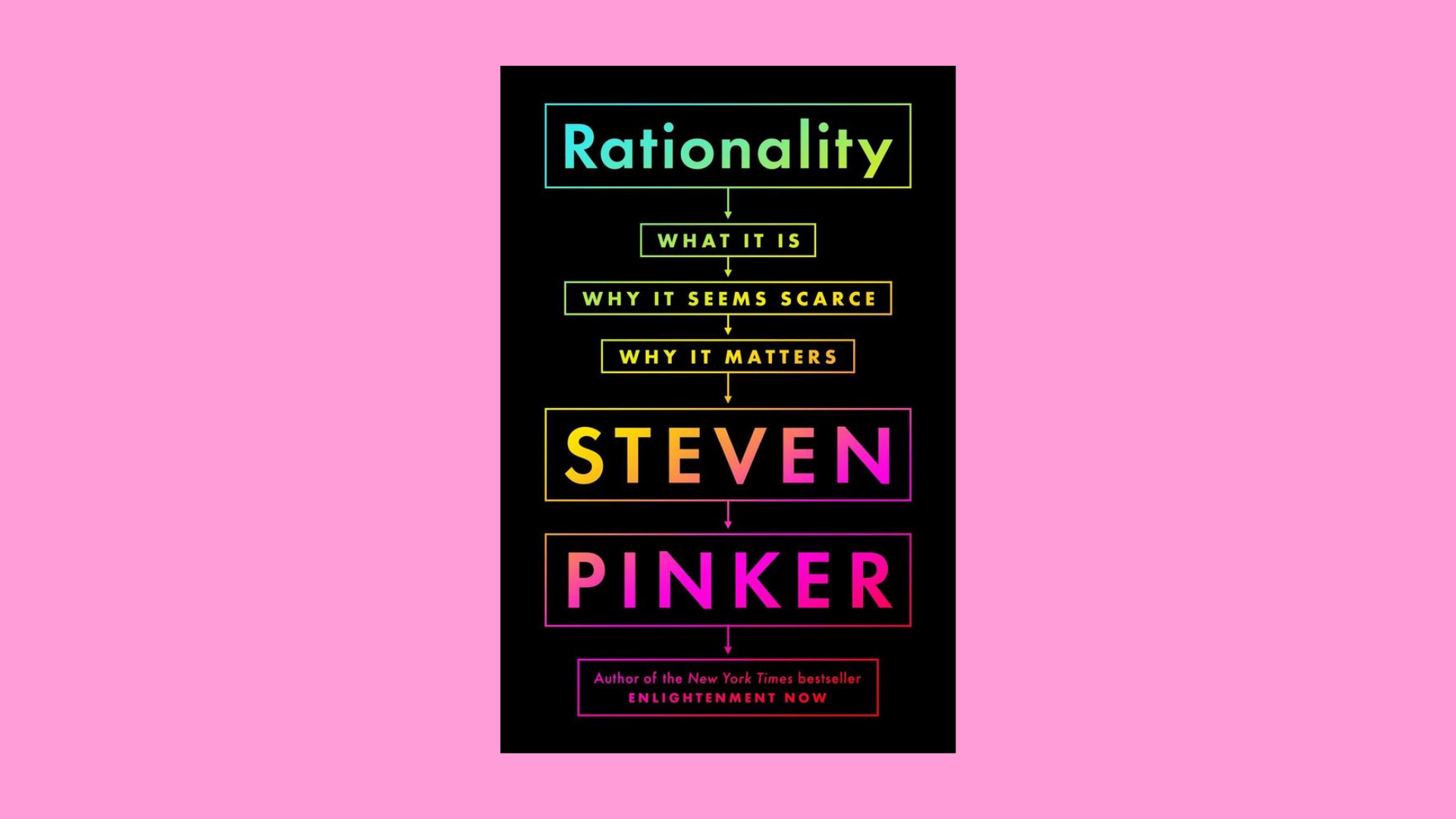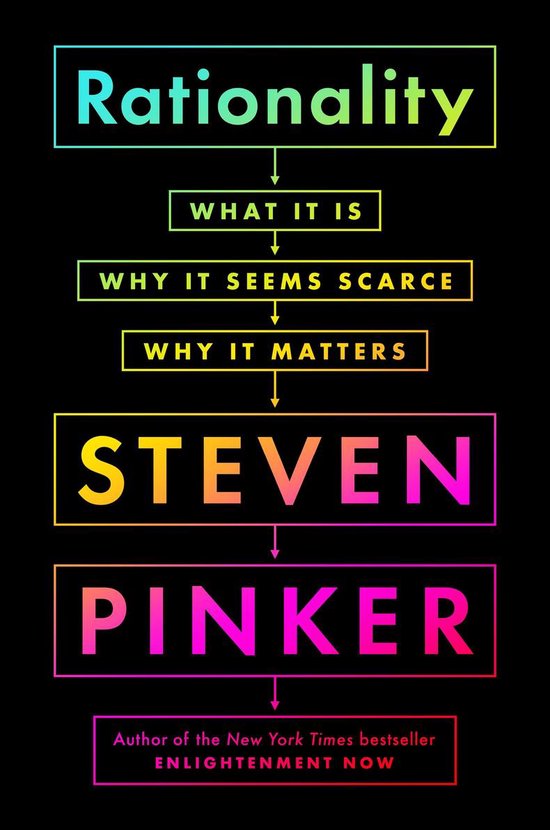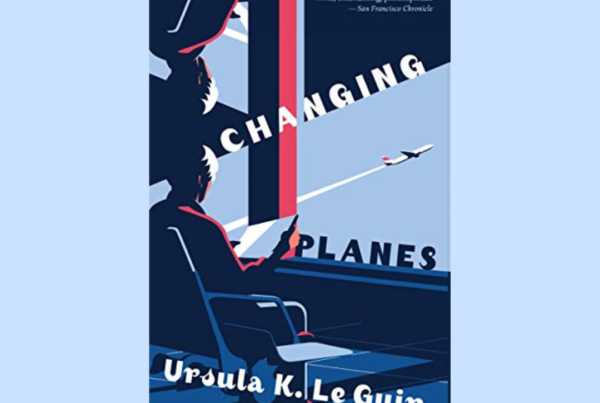
Most people think of themselves as rational. However, it turns out that it is a good idea to be skeptical about our own rationality because what is also very common is the bias blind spot: believing our own judgments to be rational, while others’ judgments to be biased by all sorts of cognitive distortions. Steven Pinker’s newly published book, Rationality: What It Is, Why It Seems Scarce, Why It Matters, aims to convince the reader of the value of exercising critical thinking.
Steven Pinker is an experimental psychologist and professor in the Department of Psychology at Harvard University. He is known for popular science works such as The Better Angels of Our Nature (2011), The Blank Slate (2002), Enlightenment Now (2018), or The Language Instinct (1994).
As he stated in an interview with Channel 4 News, one of the reasons why he wrote Rationality is to make critical thinking more accessible. Being concerned that critical thinking is not widely taught in schools, he hopes that the book will be useful for people who are interested in perfecting their reasoning.
For those who took a course on critical thinking at university, many of the topics in the book will sound familiar. Pinker talks about formal logic, probability theory, causality, logical fallacies, and cognitive biases. The strength of the book does not lie in the novelty of ideas or the way they are introduced, but in the density and variety of information. If you are looking for a comprehensive view of critical thinking, this is a great book to read.
Because it is so packed with information, few will find it a light read. It’s definitely more instructional than entertaining. The reader is expected to put in quite a bit of effort when engaging with the book. It takes time to fully absorb the technicalities of critical thinking if you want to use it for learning. The content is intellectually challenging, but as a reader, I haven’t felt confused or frustrated, thanks to Pinker’s lucid style and abundance of examples. Still, since knowing something does not automatically translate into action, let alone into a habit, Rationality is the kind of book that you should come back to every once in awhile to reread certain chapters.
Rationality is a reminder that critical thinking takes a lot of instruction, it is not something that comes naturally to us. Pinker writes that one of the greatest gifts of education is teaching people to tell apart randomness from non-randomness. After finishing the book, one might have the feeling that this is a very long and strenuous process. Personally, even if I have already heard about most of the things discussed in the book, I realized how little I consciously rely on the mentioned rules of reasoning in my daily life. So, maybe you will not master all the reasoning tools and maybe you will not recognize all logical fallacies after the first read, but Rationality will for sure convince you to develop an intellectually humble mindset and will familiarize you with critical thinking.
Available at your local book store or online, starting from €22,95. A Dutch translation is also available: Rationaliteit, starting from €28,98.

Most people think of themselves as rational. However, it turns out that it is a good idea to be skeptical about our own rationality because what is also very common is the bias blind spot: believing our own judgments to be rational, while others’ judgments to be biased by all sorts of cognitive distortions. Steven Pinker’s newly published book, Rationality: What It Is, Why It Seems Scarce, Why It Matters, aims to convince the reader of the value of exercising critical thinking.
Steven Pinker is an experimental psychologist and professor in the Department of Psychology at Harvard University. He is known for popular science works such as The Better Angels of Our Nature (2011), The Blank Slate (2002), Enlightenment Now (2018), or The Language Instinct (1994).
As he stated in an interview with Channel 4 News, one of the reasons why he wrote Rationality is to make critical thinking more accessible. Being concerned that critical thinking is not widely taught in schools, he hopes that the book will be useful for people who are interested in perfecting their reasoning.
For those who took a course on critical thinking at university, many of the topics in the book will sound familiar. Pinker talks about formal logic, probability theory, causality, logical fallacies, and cognitive biases. The strength of the book does not lie in the novelty of ideas or the way they are introduced, but in the density and variety of information. If you are looking for a comprehensive view of critical thinking, this is a great book to read.
Because it is so packed with information, few will find it a light read. It’s definitely more instructional than entertaining. The reader is expected to put in quite a bit of effort when engaging with the book. It takes time to fully absorb the technicalities of critical thinking if you want to use it for learning. The content is intellectually challenging, but as a reader, I haven’t felt confused or frustrated, thanks to Pinker’s lucid style and abundance of examples. Still, since knowing something does not automatically translate into action, let alone into a habit, Rationality is the kind of book that you should come back to every once in awhile to reread certain chapters.
Rationality is a reminder that critical thinking takes a lot of instruction, it is not something that comes naturally to us. Pinker writes that one of the greatest gifts of education is teaching people to tell apart randomness from non-randomness. After finishing the book, one might have the feeling that this is a very long and strenuous process. Personally, even if I have already heard about most of the things discussed in the book, I realized how little I consciously rely on the mentioned rules of reasoning in my daily life. So, maybe you will not master all the reasoning tools and maybe you will not recognize all logical fallacies after the first read, but Rationality will for sure convince you to develop an intellectually humble mindset and will familiarize you with critical thinking.
Available at your local book store or online, starting from €22,95. A Dutch translation is also available: Rationaliteit, starting from €28,98.




